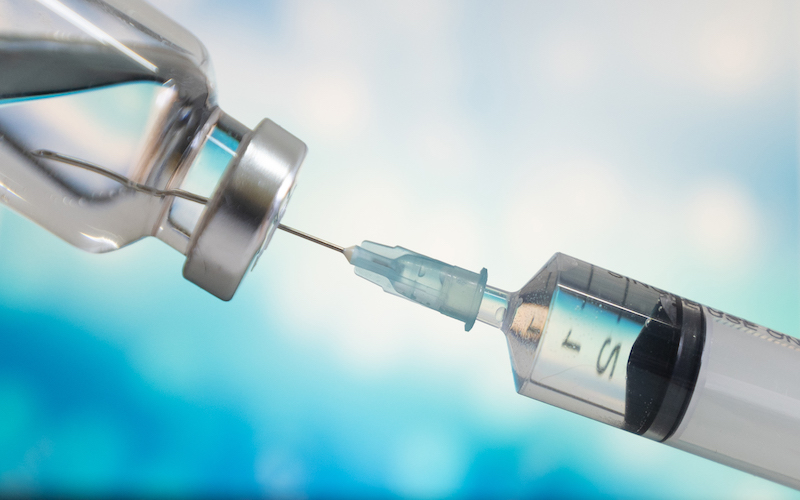
US Approves First Injectable Drug to Prevent HIV Infection
People at risk of getting HIV will now have an injectable option for pre-exposure prophylaxis (Prep) after the US regulator approved its use in adults and adolescents.
The injectable drug, cabotegravir, which goes by the brand name Apretude, is the first ever injectable HIV Prep option that at-risk people will take at intervals of two months.
The caveat for its use, as imposed by the Food and Drug Administration, is that the user has to be HIV negative and weigh at least 35 kilogrammes.
Before this approval, other forms of PrEP that were taken by HIV-negative at-risk individuals were daily pills and so far, only two types of those— Truvada and Descovy— had been approved for use.
“Today’s approval adds an important tool in the effort to end the HIV epidemic by providing the first option to prevent HIV that does not involve taking a daily pill,” said Debra Birnkrant, director of the Division of Antivirals in the FDA’s Center for Drug Evaluation and Research in a press statement.
Dr Marianne Mureithi, an HIV/AIDS researcher working with the Kenya Aids Vaccine Initiative (Kavi), yesterday December 22 told the Nation that the injectable is a breakthrough that has come right in time.
She explained that clinical trials have shown the long-acting injectable, Apretude (cabotegravir), as a PrEP is more effective at preventing HIV on a population level because it was easier for people to adhere to.
“This is a welcome and much-needed boost for HIV prophylactic prevention. With as few as six shots per year, this highly effective form of PrEP can help bend the curve of the HIV epidemic,” she said.
“It is a fantastic option for many who are looking for an alternative to daily pills for HIV prevention, particularly those who bear a big burden of exposure.”
However, Dr Mureithi is asking for a better way to roll out the drug.
This is after the most vulnerable populations in Africa witnessed inequity with the Covid-19 vaccine distribution.
“What we desperately need now is an equitable rollout for the people who need this prevention most, particularly people from sub-Saharan Africa. How long until this will become available in low-income and mid-income countries?” she asked.
The approval of injectable PrEP is now available in the US and the Aids vaccine advocacy coalition (Avac) said in a statement shortly after its approval that Avac and partners would work to support the review by health regulatory authorities in other parts of the world.
“With as few as six shots per year, this highly effective form of injectable PrEP can help bend the curve of the HIV epidemic – but only if its approval is accompanied by strategic, effective and equitable rollout that transforms the growing list of HIV prevention options into real and accessible choices for the people who need prevention most,” said Avac executive director Mitchell Warren.
Kenya’s Health Ministry’s PrEP Programme Manager Mary Mugambi told the Nation that despite the drug being approved for use by US FDA, the country’s drug regulatory authority, the Pharmacy and Poisons Board, has to give it a nod as well before it is rolled out in the country.
Research from clinical trials that were published last year showed better results from the injectable PrEP compared to the oral pills.
A report published by the World Health Organisation in November last year that is based on a study conducted in south and eastern Africa, including Kenya, on women at risk of acquiring HIV showed bias on the injectable.
“While oral PrEP is highly effective in preventing HIV in women when taken as prescribed, some women find it difficult to take a daily tablet, and inconsistent use of oral PrEP reduces the prevention effect. A long-acting injectable formulation has the potential to improve the prevention effect without relying on adherence to a daily oral PrEP regimen, and to increase prevention choices and acceptability among women,” said WHO.
“These results do not contradict evidence showing that consistently using oral PrEP is highly effective as has been demonstrated in several trials. However, adhering to the daily dosing schedule is important. Even short lapses in taking oral PrEP can reduce the protection from HIV acquisition.”
Two studies highlighted by the FDA showed that, compared to oral pills, the injectable PrEP offered potent protection.
In one of the studies, participants who took the new injectable, Apretude, had a 69 per cent less risk from getting HIV compared to taking the Truvada PrEP pill that was used in the study.
The second study showed a 90 per cent less risk of getting HIV after taking the injectable.

